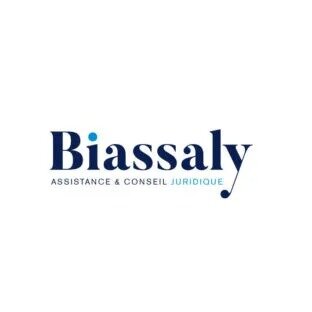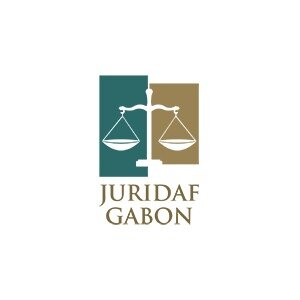Best Public-Private Partnerships (PPP) Lawyers in Gabon
Share your needs with us, get contacted by law firms.
Free. Takes 2 min.
Or refine your search by selecting a city:
List of the best lawyers in Gabon
About Public-Private Partnerships (PPP) Law in Gabon
Public-Private Partnerships (PPPs) are cooperative arrangements between public sector entities and private sector companies designed to finance, build, and operate projects such as infrastructure, healthcare facilities, or energy plants. In Gabon, PPPs have become increasingly significant as the government seeks to modernize infrastructure and provide public services efficiently. The legal structure governing PPPs is crafted to ensure mutual cooperation and proper risk sharing between the public and private sectors.
PPPs in Gabon are governed by a dedicated legal and regulatory framework that aims to create a transparent, secure, and attractive environment for private investors while safeguarding the public interest. This framework outlines how projects should be structured, procured, and managed throughout their lifecycles, from conception to operation and transfer.
Why You May Need a Lawyer
Public-Private Partnership projects often involve complex legal, financial, and technical considerations. Here are some common situations where you might require legal assistance:
- Project Structuring: Determining the optimal legal and contractual structure for a PPP project, including choosing the right partnership model.
- Bidding and Procurement: Navigating government procurement procedures, responding to calls for tenders, and ensuring compliance with applicable requirements.
- Contract Negotiation: Drafting and negotiating concession agreements, risk allocation clauses, and performance standards.
- Regulatory Compliance: Ensuring adherence to local laws, sector-specific regulations, and compliance with anti-corruption and transparency rules.
- Project Finance: Structuring project finance, managing financial risks, and liaising with lenders or development banks.
- Dispute Resolution: Handling disagreements or disputes between public and private entities, using negotiation, mediation, or legal proceedings if necessary.
Local Laws Overview
Gabon’s PPP legal framework is guided by national laws, government regulations, and relevant sectoral guidelines. Key aspects include:
- Legal Foundation: Gabon has specific PPP laws and decrees that define how government agencies can partner with private companies. The framework sets out the procedures for identifying, developing, approving, and managing PPP projects.
- Institutional Roles: The Ministry of Economy (or a similarly mandated body) oversees PPP programs, while sectoral ministries are responsible for initiating and supervising projects within their domains.
- Procurement Process: PPP contracts are typically awarded through competitive bidding to ensure transparency and fairness. The law outlines the requirements for prequalification, bidding, and selection.
- Types of PPP: The law recognizes different forms such as concessions, Build-Operate-Transfer (BOT), and management contracts, each with specific legal implications.
- Risk Sharing: The legal framework stipulates how risks (such as construction, demand, or political risks) should be distributed between public and private partners.
- Contract Management: Laws set out how contracts should be managed over time and the mechanisms for amending, monitoring, or terminating agreements.
- Dispute Resolution: Formal frameworks are provided for arbitration or court proceedings in case of conflicts between parties.
Frequently Asked Questions
What is a Public-Private Partnership (PPP)?
A PPP is a formal collaboration between a government agency and a private company to finance, construct, and operate a project or provide a public service.
Which types of projects can be developed through PPP in Gabon?
Infrastructure (roads, bridges, airports), energy (power plants), water and sanitation, health facilities, and certain public services are common sectors for PPP projects.
What laws regulate PPPs in Gabon?
PPPs are regulated by specific national laws, decrees, and sector regulations. The government also issues implementing rules to clarify procedures.
Who can initiate a PPP project in Gabon?
Both government bodies and private investors can initiate PPP projects. The process usually involves identifying public needs and preparing a project proposal.
How are PPP contracts awarded in Gabon?
Contracts are commonly awarded through competitive bidding processes, which are designed to ensure transparency, competition, and value for money.
What are the main risks involved in a PPP?
Risks can include construction delays, cost overruns, demand shortfalls, regulatory changes, and political instability. Proper risk allocation is critical in PPP agreements.
How can I ensure legal compliance in a PPP project?
It is essential to have legal counsel with expertise in Gabonese PPP law to ensure all legal, financial, and regulatory requirements are met throughout the project's lifecycle.
Can foreign companies participate in PPPs in Gabon?
Yes, foreign companies can participate, but they must comply with Gabonese laws, local content requirements, and any sector-specific foreign investment rules.
What dispute resolution options are available?
Disputes can be resolved through negotiation, mediation, arbitration, or litigation, as determined by the terms of the PPP contract and applicable law.
How long does it take to develop and implement a PPP project?
Timelines vary based on project complexity and sector, but developing and closing a PPP can take from several months to a few years, including approval, procurement, and negotiation phases.
Additional Resources
If you need further information or assistance, the following resources and entities may be helpful:
- Ministry of Economy and Finance of Gabon: Principal body overseeing PPP policy and project approvals.
- Public Procurement Regulatory Authority: Supervises public procurement compliance and processes.
- Business Gabon: A government liaison for investors seeking information on operating in Gabon, including in PPP sectors.
- Investment Promotion Agency of Gabon: Provides support and guidance to investors interested in participating in PPP projects.
- Relevant Sector Ministries: Depending on the project, ministries such as Infrastructure, Energy, or Health may offer additional sector-specific guidelines.
- Local Business Associations and Law Firms: Can provide legal, commercial, and practical guidance on PPP matters.
Next Steps
If you are considering participating in a Public-Private Partnership in Gabon, it is vital to:
- Conduct Initial Research: Gather background information about potential projects, requirements, and market conditions.
- Consult with Experts: Seek advice from legal professionals with expertise in Gabonese and international PPP frameworks.
- Prepare Documentation: Ensure all necessary documents are ready, including business plans, financial models, and compliance records.
- Engage with Authorities: Reach out to relevant government agencies or PPP regulatory bodies for guidance on current opportunities and formal procedures.
- Review and Negotiate Carefully: Work with your lawyer to review draft contracts, assess risk allocation, and negotiate key terms before signing any agreement.
Taking these steps helps ensure your interests are protected, all legal requirements are met, and your PPP project stands the best chance of long-term success in Gabon.
Lawzana helps you find the best lawyers and law firms in Gabon through a curated and pre-screened list of qualified legal professionals. Our platform offers rankings and detailed profiles of attorneys and law firms, allowing you to compare based on practice areas, including Public-Private Partnerships (PPP), experience, and client feedback.
Each profile includes a description of the firm's areas of practice, client reviews, team members and partners, year of establishment, spoken languages, office locations, contact information, social media presence, and any published articles or resources. Most firms on our platform speak English and are experienced in both local and international legal matters.
Get a quote from top-rated law firms in Gabon — quickly, securely, and without unnecessary hassle.
Disclaimer:
The information provided on this page is for general informational purposes only and does not constitute legal advice. While we strive to ensure the accuracy and relevance of the content, legal information may change over time, and interpretations of the law can vary. You should always consult with a qualified legal professional for advice specific to your situation.
We disclaim all liability for actions taken or not taken based on the content of this page. If you believe any information is incorrect or outdated, please contact us, and we will review and update it where appropriate.
Browse public-private partnerships (ppp) law firms by city in Gabon
Refine your search by selecting a city.










